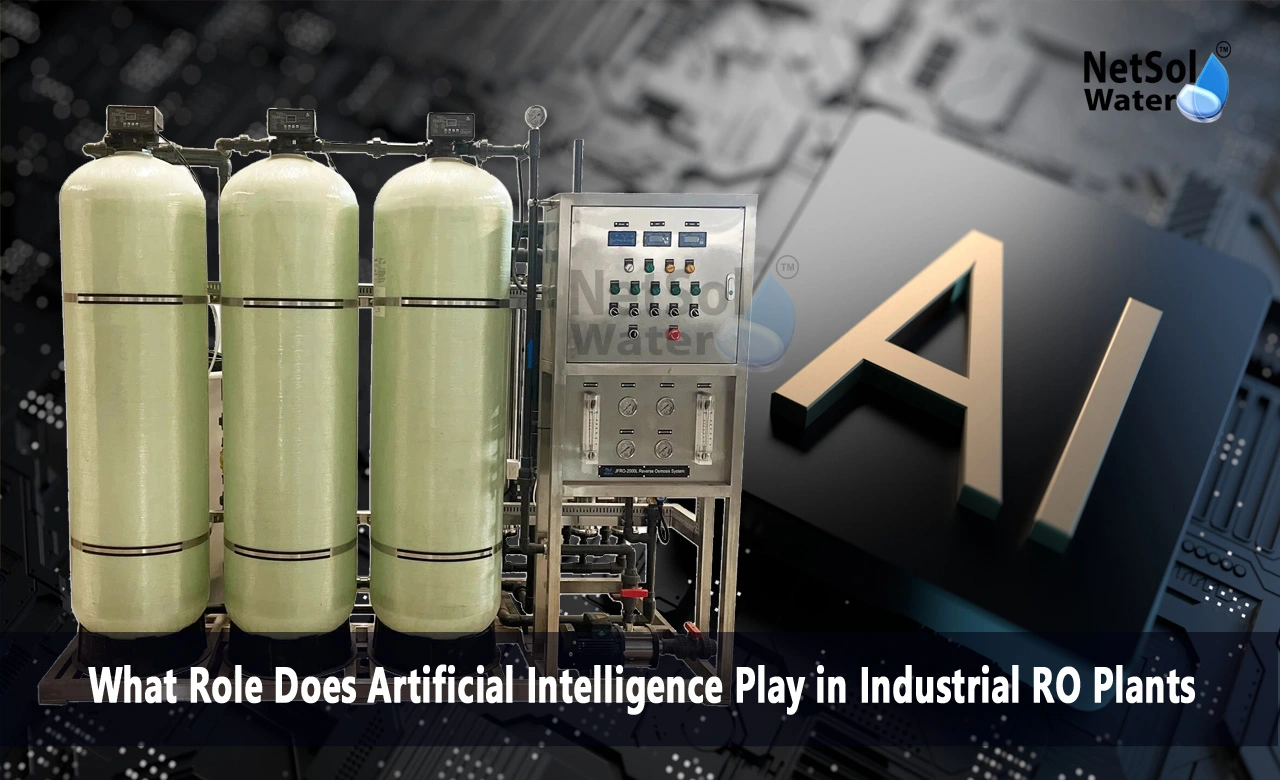What Role Does Artificial Intelligence Play in Industrial RO Plants?
Industrial RO plants produce billions of gallons of process water annually across sectors like power, oil & gas, manufacturing and more. However, operating these facilities optimally while navigating complex feed water dynamics, fouling challenges, and energy constraints is no trivial task. Artificial intelligence (AI) is emerging as a transformative enabler to enhance the productivity, efficiency and reliability of industrial RO assets. From predictive analytics and automated control to process optimisation and intelligent decision support - AI/machine learning opens up new frontiers.
We woll explores the powerful potential of AI integration within industrial RO plants. We examine the key application areas, benefits realised, and practical implementation of this digital technology.
AI for Predictive Asset Performance Management
Reverse osmosis membranes are subject to fouling from organics, biofilms, scaling and oxidative attack - degrading performance over time. AI techniques can forecast and preempt these issues through:
Predictive Maintenance: Continuously monitoring sensor data trails from RO units allows AI models to detect anomalies that precede failures. This enables timely condition-based maintenance to restore performance and extend membrane life.
Remaining Useful Life: By learning from historical membrane autopsy data, AI can extrapolate and predict remaining service life. This guides proactive membrane changeout planning and spares inventory management.
Root Cause Diagnostics: AI models distill insights from multi-parameter datasets to isolate root causes behind performance degradation. Whether its scaling, fouling or premature membrane oxidation - pinpointing culprits allows targeted corrective actions.
Prescriptive Analytics: Going beyond diagnostics, AI-powered digital twins can prescribe optimal corrective actions like cleaning regimes, anti-scalant dosing or operating points to restore system health.
AI for Automated Process Optimization
Numerous interdependent parameters like feed quality, membrane selectivity, pressure, recovery, energy usage and chemical consumption rates dictate the performance of industrial RO plants. AI/ML models can intelligently optimise operations by:
Soft Sensor Modeling: Training neural networks on historical data allows virtual sensors to estimate key variables like scaling tendency, oxidant ingress or colloidal fouling potential - which may be challenging to measure directly.
Model Predictive Control: Leveraging soft sensors, AI controllers can forecast plant outputs and dynamically adapt manipulated variables like pump speeds, valve positions and dosing rates to maintain optimal setpoints.
Multi-Objective Optimization: Advanced AI algorithms juggle competing objectives like permeate quality, energy efficiency, recovery and chemical costs to identify Pareto-optimal operating regimes for the RO plant.
Automation & Autonomy: Embedded AI models coupled with advanced control hardware enable lights-out autonomous operation of RO systems with minimal human intervention required.
AI for Intelligent Decision Support
Beyond real-time process optimisation, AI can drive higher-level strategic decisions around industrial RO plants by synthesising insights from diverse data streams:
Membrane Autopsy Analytics: Deploying computer vision techniques on membrane imagery helps identify fouling mechanisms and degradation patterns to optimise cleaning and replacement.
Digital Twins: AI-powered physics-based digital twins accurately simulate industrial RO assets incorporating intensive hydrodynamics and mass transfer models. They enable in-silico whatif explorations, operational planning and capital investment evaluations.
Knowledge Graphs: Ingesting disparate structured/unstructured data from documents, sensors and human experts into knowledge graphs allows reasoning over industrial RO domain knowledge. This supports interactive root cause analysis and decision recommendation.
Failure Modes and Effects Analysis: AI models stitching together comprehensive fault trees from RO plant data trails enable risk-based reliability engineering studies. The insights drive predictive maintenance and process re-engineering initiatives.
Challenges and Enablers for AI Adoption
While AI/ML techniques offer tremendous benefits for industrial RO operations, some challenges around their pragmatic adoption exist:
Data Quality and Integration: Inconsistent data quality and lack of comprehensive sensor coverage limits the development of accurate AI/ML models. Integration across siloed data sources like historians, LIMS and CMMS systems is vital.
Organisational Alignment: AI rollouts require aligning cross-functional teams spanning process, automation, reliability, IT/OT and business stakeholders around shared goals. Change management strategy is crucial for user adoption.
Skills and Workforce: As AI pervades operational roles, upskilling plant personnel on data ground-truthing, model interpretation and human-AI collaboration is necessary. New multi-disciplinary roles like hybrid engineers will emerge.
AI Governance and Trust: Transparent model monitoring processes along with proactive risk mitigation plans governing safe AI deployment have to be institutionalisedto ensure responsible, ethical and trustworthy AIOperationalization and Scaling.
Conclusion
Artificial intelligence and machine learning are potent technologies catalysing the next phase of performance improvement and operational excellence for industrial reverse osmosis desalination plants. Applications span the gamut from predictive asset maintenance and automated process optimisation to intelligent decision support.Whilemaximising productivity and membrane life have always been goals, the increased data volumes generated by modern IoT-connected plants enable deploying advanced AI models. From predictive quality control to energy and chemical optimization, AI unlocks tremendous potential. The technology's evolution now allows managing the complexities of dynamic membrane processes.From improving economics to extending asset reliability, AI has the potential to transform how we design, deploy and operate industrial reverse osmosis plants.
To explore customised commercial RO plants, Industrial RO plants, ETP or STP solutions for your needs in your areas and nearby regions, contact Netsol Water at:
Phone: +91-965-060-8473, Email: enquiry@netsolwater.com



